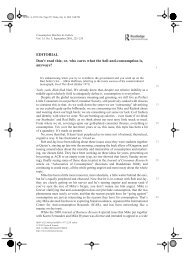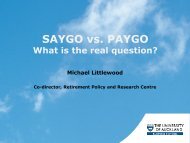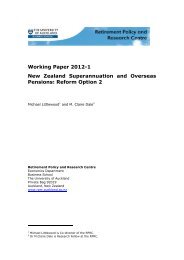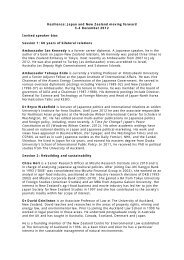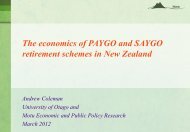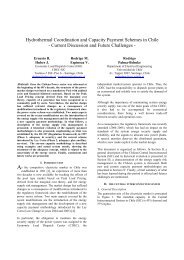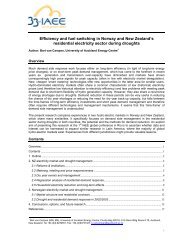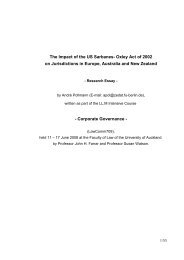TAX NONCOMPLIANCE AMONG SMALL and MEDIUM ...
TAX NONCOMPLIANCE AMONG SMALL and MEDIUM ...
TAX NONCOMPLIANCE AMONG SMALL and MEDIUM ...
You also want an ePaper? Increase the reach of your titles
YUMPU automatically turns print PDFs into web optimized ePapers that Google loves.
The results of this study also show that financial liquidity did not exert a positive effect on tax<br />
noncompliance. Companies with a strong financial liquidity also tend to engage in<br />
noncompliance. Notably, 90% of the SMEs examined were profit making companies; just 10%<br />
were loss-making companies. This results differ from the studies by Spathis (2002) <strong>and</strong> Rohaya<br />
et al. (2009), as well as the conventional belief. Conventionally, there is a general belief that a<br />
loss-making company is more likely to be non compliance <strong>and</strong> as stated by Thanneermalai <strong>and</strong><br />
Farah (2010), a loss-making company is more likely to attract the tax authority during the<br />
selection of cases for a tax audit However, an analysis of SMEs selected for tax audit in 2011 did<br />
not support this. Based on the finding, H₃ is not supported. Table 5 also shows that H₄ is not<br />
accepted. There is no significant relationship between foreign ownership <strong>and</strong> tax noncompliance.<br />
The results show no difference from the aspect of tax noncompliance between companies with<br />
foreign ownership <strong>and</strong> without foreign ownership. This finding did not support Hanlon et al.<br />
(2007) who found that the foreign-controlled companies tend to engage in tax noncompliance.<br />
As for company size, the regression coefficient is negative <strong>and</strong> statistically significant at p



